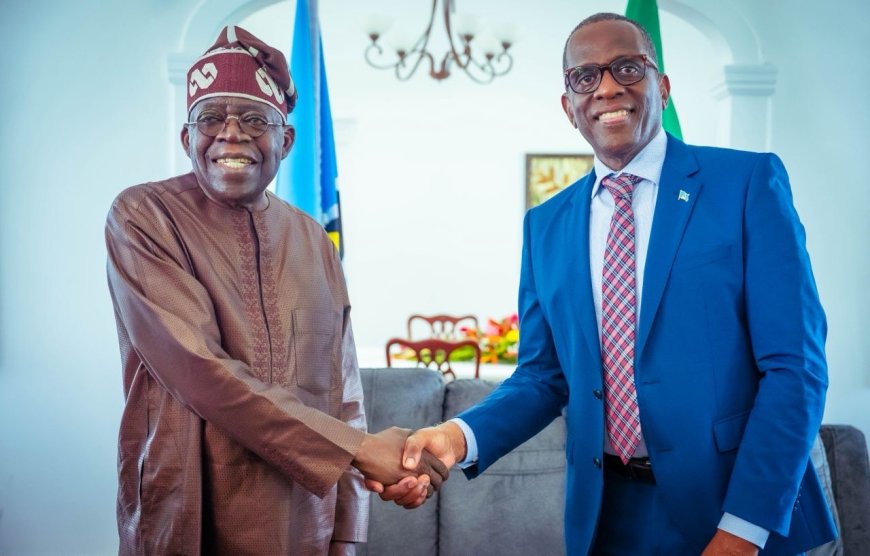Backlash against Tinubu’s visit shameful, rooted in self-hate – Saint Lucia PM

Saint Lucia’s Prime Minister, Philip Pierre, has condemned the backlash surrounding President Bola Tinubu’s recent visit to the Caribbean nation, describing it as “shameful” and rooted in a legacy of self-hate born from slavery.
Tinubu’s visit, which included a formal address to a joint session of Saint Lucia’s Senate and House of Assembly, attracted mixed reactions both locally and in Nigeria.
Critics in Nigeria questioned the necessity of the visit, especially in the wake of a deadly flood in Minna, Niger State, which claimed over 200 lives.
In Saint Lucia, opposition parties and commentators scrutinised the cost of the visit, temporary airport closures, and the nature of any resulting bilateral agreements.
Speaking during his 2025 Emancipation Day address on August 1, Pierre decried the “vilification and denigration” of Tinubu’s June 29 visit, framing it as a harmful residue of colonialism that still distorts perceptions of African leadership.
He said, “The vilification and denigration of the President of Nigeria, Bola Tinubu, by a politically-motivated group tacitly supported by the opposition group was another demonstration of the harmful effects of the legacy of slavery — self-hate and readiness to accept African people and their descendants as inferior,” he said.
Pierre added that such criticisms were politically motivated and steeped in disrespect toward African heritage.
That behaviour was nothing short of shameful and disgraceful. Had the visit been by a head of state from another country, the reception from that group would have been at the least respectful.”
The Prime Minister went on to reaffirm Saint Lucia’s appreciation for Tinubu’s visit and emphasised a commitment to building stronger ties with Nigeria.
“To the government and the people of Nigeria, the government and the people of Saint Lucia have been honoured by your president’s visit.”
Emancipation Day in Saint Lucia marks the abolition of slavery in the British Caribbean and is commemorated with reflections on racial justice, Pan-Africanism, and solidarity with the African diaspora.
Cupped from Punch.

 admin
admin 


